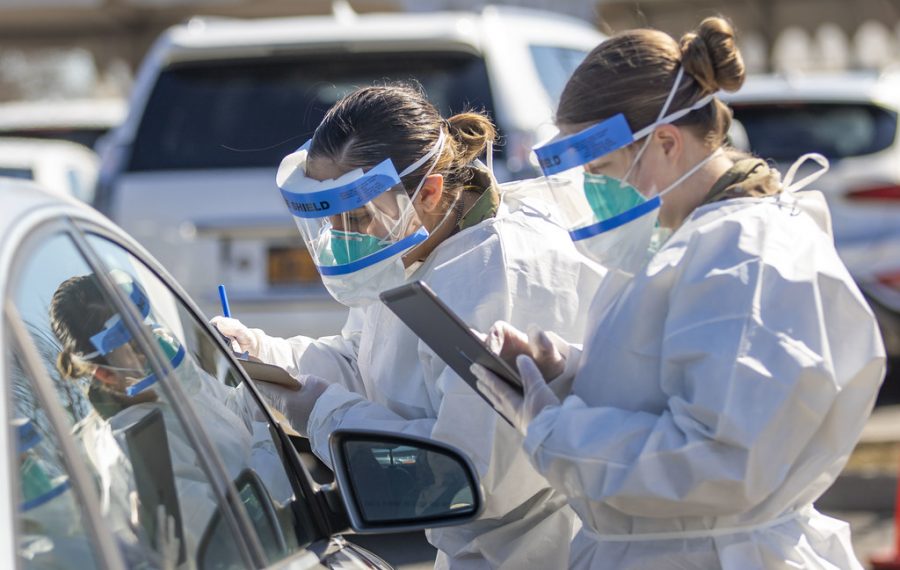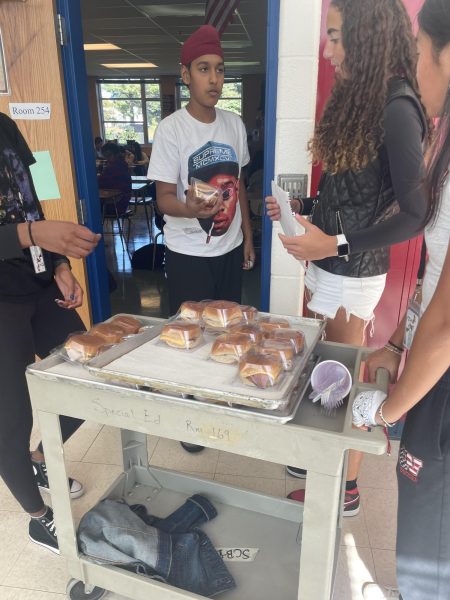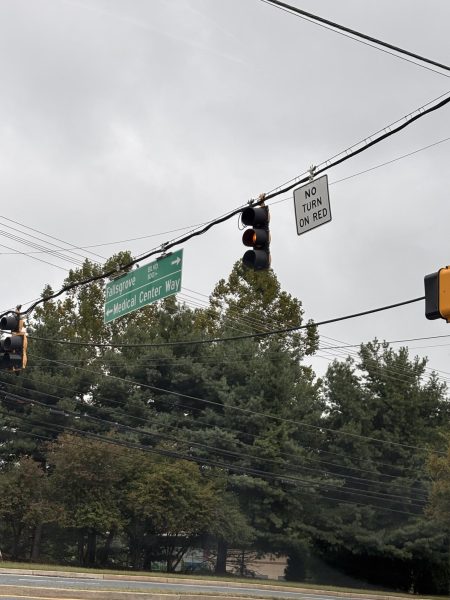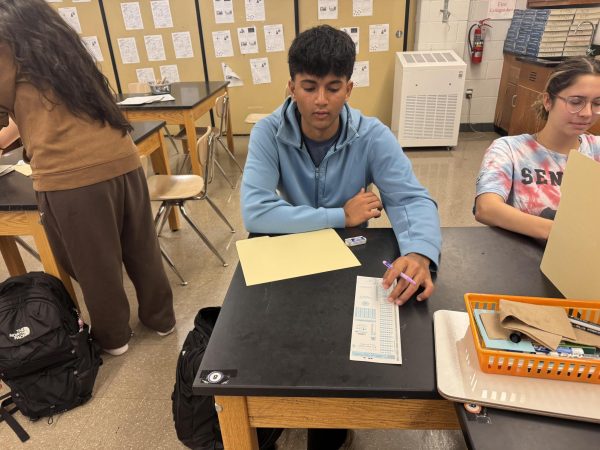How much longer should we expect Covid to be around?
Photo used with permission from Google Commons
The New York National Guard is mobilized and gears up with personal protective equipment to help out with COVID-19 efforts.
As the world approaches one year of lockdown orders, social distancing measures and mask wearing, we can’t help but ask how much longer life will stay the way it is before the world begins to reopen up. How much longer will Covid be with us?
The new Biden administration has pledged to deliver 100 million doses of the vaccine in the administration’s first 100 days, according to CNN. Newly appointed CDC director Dr. Rochelle Walensky told Fox News Sunday that the federal government is unaware of the number of doses the nation currently has, further complicating the task of accurately delivering vaccines to the public. Reuters also reported issues with vaccine distribution, as President Biden’s chief of staff Ron Klain stated that there the Trump administration gave no distribution plan to the incoming Biden administration.
Health officials agree that without widespread distribution of the vaccine, there is little chance of successful reopenings. Director of the National Institute of Allergy and Infectious Diseases Dr. Anthony Fauci said that the magic number to achieve herd immunity is 75-80 percent, according to The Harvard Gazette. “If we do it efficiently enough over the second quarter of 2021, by the time we get to the end of summer, we can approach very much some degree of normality that is close to where we were before.”
Sophomore Richard McDaniel has mixed feelings about the current distribution of the vaccine. “They are working as hard as they can to distribute the vaccine. I wish it would be a little faster and they shouldn’t allow some people to get the vaccine before others unless they are a healthcare worker,” McDaniel said.
Junior Spencer Golub shares similar concerns. “I think that the vaccine distribution hasn’t been at the speed or efficiency that it needs to be so far. I’d imagine it’s a logistical nightmare to get it out to so many people so quickly but that doesn’t mean I can’t wish for it to be quicker,” Golub said. “I think something that has worked quite well is that there seems to be a nice distribution of where in the country it is actually available. I have a family member who has gotten the vaccine due to being a public health worker and she didn’t have to travel far at all to get it.”
Whether reopening plans see much success the third time around is yet to be seen. The Biden administration made a pledge to reopen most K-12 schools in his first 100 days, according to ABC7 New York, and the Washington Post reports that one of Biden’s latest executive orders gave school districts guidance in deciding “whether and how to reopen, and how to remain open, for in-person learning, including by implementing mitigation measures such as cleaning, masking, proper ventilation, and testing.”
Business reopening is another tough barrier to tackle on the path to normalcy. “I don’t think businesses will operate at full capacity for a very long time, maybe one to two years,” McDaniel said.
On the other hand, Golub believes that “soon enough businesses will reopen for those with proof of vaccination with close to normal capacity. It just seems like too long for businesses to be closed, and a vaccine gives them a perfect reason to reopen.”
Even if reopening is executed, it remains to be seen whether preventive measures will be eased off as well. “I think that mask-wearing and social distancing practices will stay in effect for a long time, as even if the pandemic disappeared tomorrow I think public fear of it would still keep these policies in place for a decent chunk of time after,” Golub said.
A third concern has to do with the virus itself; specifically, its ability to mutate rapidly and infect at quicker rates. Dr. Vivek Murthy, President Biden’s surgeon general pick, said, “We are in a race against these variants, the virus is going to change and it’s up to us to adapt and to make sure that we’re staying ahead.”
Fauci addressed these concerns on CBS’ Face the Nation, stating that research on the B.1.1.7 strain of Covid, which originated in the UK, appears to be 30 percent deadlier, in addition to being more transmissible. “I think Covid is here to stay for the long term simply because it seems to mutate fast enough to the point where eventually a strand of it won’t be affected by our current vaccines. My guess is that it’ll be some sort of annual vaccination thing like the flu and it is never going to fully disappear,” Golub said.
Your donation will support the student journalists of Thomas S. Wootton High School. Your contribution will allow us to purchase equipment and cover our annual website hosting costs.
Joaquin Moreno is a 2022 graduate.







